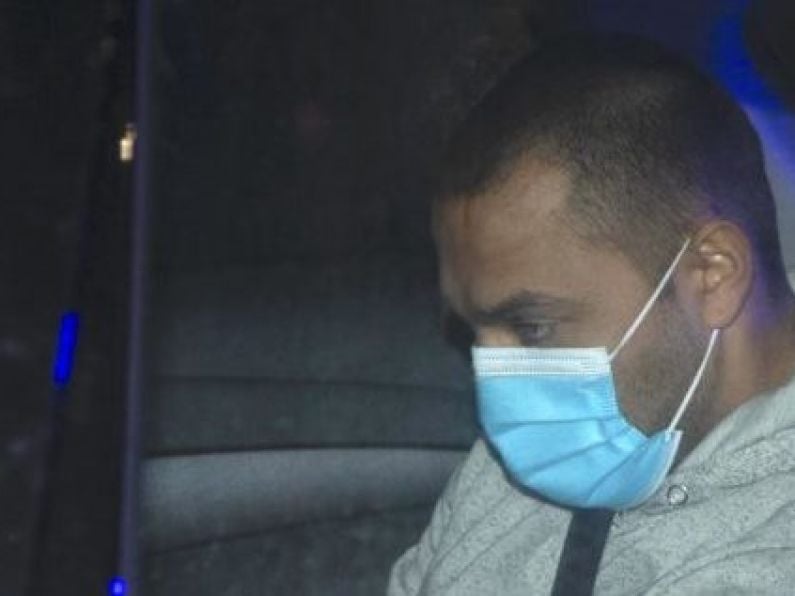The Irish Prison Service has been urged to keep its nursing committal forms under constant review after an inquest returned a verdict of suicide in the case of a man who took his own life less than four hours after being committed to Cork Prison.
The IPS’s head of care, Fergal Black, has also pledged to meet with senior gardaí to see if improvements can be made to procedures around the relaying to prison staff of relevant information that investigating gardaí might have about certain prisoners.
It follows an inquest at Cork City Coroner’s Court yesterday into the death of Vytas Lemnickis, 45, in Cork Prison on January 29, 2018.
The Lithuanian father-of-two had been living with his family in Ard na Greine in Dingle, Co Kerry, for almost a decade.
Coroner Philip Comyn heard how he had presented at his GP a few days before his death complaining of anxiety and insomnia, and that he was involved in an altercation on January 28, 2018, and was treated at Kerry General Hospital for lacerations, cuts and scrapes to his head and face.
He was brought before Tralee District Court on the morning of January 29 and was remanded in custody to Cork Prison that afternoon to await trial. He had no previous convictions. It was his first time in prison.
He was assessed by a nurse using a standard committal or ‘screening’ form and “no markers” were raised.
But he was found unresponsive in his cell less than four hours later. The cause of death was asphyxia due to suspension by a ligature.
His daughter, Goda, wept in the witness box as she told the inquest that she and her mother, Asta, had left the family home just days before as her father’s mental health deteriorated. She said they told gardaí he needed help.
“We felt guilty leaving him behind but no-one could take care of him. We were depending on gardaí to help us,” she said.
But she said they did not raise their concerns with his GP or the prison service.
Staff at Cork Prison were not made aware of his difficulties when he arrived on January 29, and he was assessed by nurse, Niamh Stott, at around 3.30pm.
She said he showed no signs of distress and despite his poor level of spoken English, he answered ‘yes’ to feeling anxious, but ‘no’ when asked if he felt hopeless, worthless, and if he had suicidal thoughts.
When asked if he felt life was worth living, he answered ‘yes’.
“He seemed quite relaxed and calm. He didn’t appear restless or agitated. He seemed a pleasant man and there were no markers,” she said.
Consultant psychiatrist, Dr Eugene Morgan, who was not involved in the care of the prisoner, described the assessment as a “good screening mechanism” but warned that impulsivity can often be a feature in such deaths.
Mr Lemnickis was placed in an ordinary cell on the B1 landing at around 3.35pm where policy at the time was that all committals would be placed on ‘special observations’ and checked every 15 minutes.
There are between 8,000 and 10,000 committals to Irish prisons annually and Liam Spacey, the assistant governor of Cork Prison, said such was the workload on class officers, the checks were not always done.
Prison officer, Sean Murphy, said it was an exceptionally busy afternoon on the wing that day and that no-one raised any concerns with him about this prisoner.
He said where at all possible, the 15-minutes checks were done but he said when officers were busy, the checks on this category of prisoner “were just overlooked”.
The inquest established that Mr Lemnickis was checked by prison staff at 3.45pm, when food was brought to his cell, at 5pm and at 6.40pm. At no stage were staff concerned.
The alarm was raised at 7.01pm but Mr Lemnickis could not be resuscitated and death was pronounced at the scene.
Elizabeth O’Connell BL, counsel for his family, said CCTV showed Mr Murphy walking past the cell door up to 14 times in the relevant period and not checking.
There appeared to be a culture in place, or “a systemic approach” where the 15-minute checks were seen as something not to be applied, she said.
She said of the four deaths by hanging in Irish prisons in 2017, all were remand prisoners — the same category as Mr Lemnickis.
Mr Spacey accepted there were “short-fallings” in this case which led to disciplinary action.
“It was very unfortunate. He was someone who should have been checked every 15-minutes and was not,” he said.
Mr Black said it was “most unfortunate” that prison staff hadn’t been informed of the family’s concerns.
The inquest was told that a new policy has now been introduced whereby ordinary committals are now checked every three hours, allowing the IPS to direct its resources to those ‘at-risk’. or ‘special observations’ prisoners most in need of the care, with an officer dedicated to perform those checks.






